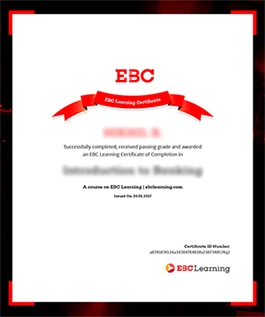Company Law Essentials: Mod 1 — Introduction to Company Law
Companies are one of the most sought after business structures across the globe. The Corporate Law Essentials courses comprise 5 detailed modules and aim to equip learners with the fundamentals of corporate law, its development and practice. The present module deals with the origin and growth of the company structure, its essential features, key distinctions compared to other forms of businesses, types of companies, fundamental documentation, promotion, incorporation and relevant key legal authorities. The other four modules deal with securities, directors and management, meetings and winding up respectively.
This course is specifically designed keeping in mind the syllabi of leading Indian law schools. Practitioners can use this as a refresher course, and anyone taking competitive examinations such as CS and CA may also take this course. In addition to the videos, this course also comprises examination pointers, assignments, mind maps, flashcards, full texts of relevant sections and links to the full texts of cases on SCC Online.

No individual or company, no matter how large or how profitable, is above the law.
Eric Holder- 1. Introduction
- 1.1 Introduction
- 2. Origins of a company
- 2.1 Historical growth of companies in UK
- 2.2 Historical growth of companies in India
- I. Examination pointers
- 3. Features of a company and the theory of corporate personality
- I. Relevant sections
- 3.1 Essentials of a company
- 3.2 Artificial legal person — corporate personality
- 3.3 Artificial legal person—Salomon v. Salomon
- 3.4 Artificial legal person—significant case laws
- 3.5 Company not a citizen of India
- 3.6 Limited liability
- 3.7 Perpetual succession
- 3.8 Separate property
- 3.9 Separate property—Indian case laws
- 3.10 Transferability of shares
- 3.11 Common seal
- 3.12 Capacity to sue and be sued
- II. Examination Pointers
- III. Exercises
- 4. Company versus other forms of business
- I. Relevant sections
- 4.1 Company versus a partnership
- 4.2 Company versus an HUF
- 4.3 Company versus an LLP
- 4.4 Lifting of the corporate veil
- II. Examination Pointers
- III. Exercises
- 5. Types of companies
- I. Relevant sections
- 5.1 Chartered company
- 5.2 Statutory corporations
- 5.3 Registered company
- 5.4 Limited and unlimited companies [S. 2(92)]
- 5.5 Public [S. 2(71)] and private companies [S. 2(68)]
- 5.6 Holding company, subsidiary company and associate company
- 5.7 Producer companies
- 5.8 Small company [S.2(85)]
- 5.9 One person company [Sec.2(62)]
- 5.10 Company with charitable objects
- 5.11 Other forms of companies
- II. Examination pointers
- III. Exercises
- 6. Memorandum of Association
- I. Relevant sections
- 6.1 Memorandum of Association and doctrine of ultra vires
- 6.2 Contents and form of MOA
- 6.3 Alteration in Memorandum of Association
- II. Examination pointers
- III. Exercises
- 7. Articles of Association
- I. Relevant sections
- 7.1 Articles of Association
- 7.2 Concept of entrenchment in Articles of Association
- 7.3 Doctrine of constructive notice
- 7.4 Doctrine of indoor management
- II. Examination pointers
- III. Exercises
- 8. Promotion of a company
- I. Relevant sections
- 8.1 Who can be a promoter (S.2)
- 8.2 Position of a promoter
- 8.3 Duties of a promoter
- 8.4 Liabilities of promoters
- 8.5 Rights of promoters
- II. Examination pointers
- III. Exercises
- 9. Registration of a company
- I. Relevant sections
- 9.1 Formation of a company (S.3)
- 9.2 SPICE+ form
- II. Examination pointers
- III. Exercises
- 10. Institution and adjudicatory bodies
- I. Relevant sections
- 10.1 Registrar of companies
- 10.2 Securities Exchange Board of India (SEBI)
- 10.3 National Financial Reporting Authority (NFRA)
- 10.4 Serious Fraud Investigation Office (SFIO)
- 10.5 Competition Commission of India (CCI)
- 10.6 Adjudicatory authorities under the Companies Act, 2013
- II. Examination pointers
- III. Exercises
- 11. Conclusion
- 11.1 Conclusion
- I. INDEX (FULL TEXT OF LEADING CASES)
- I. Index: Full text of cases
WHY TAKE THIS COURSE?
The key reason why one should opt for this course is because of the way it is structured and presented. Throughout the course, the concepts have been explained in a streamlined manner. All the key concepts that are necessary to establish a strong foundation in the subject have been covered in the course. The course has been designed and developed after months of rigorous research and planning by a team comprising leading industry experts backed with teaching experience. Taking this course will help students excel in their examinations.
In addition to the videos, we have also provided special features such as examination pointers, assignments, list of relevant case laws, mind maps and references for further reading, to enhance the learning process. This course can be taken by law students, practitioners as well as competitive exam aspirants.
Instructors

Charu Mathur
Dr Charu Mathur has a rich and diverse expertise in corporate, commercial, civil, criminal and constitutional law matters. She is an Advocate on Record, Supreme Court of India. She has represented parties which include cricketing bodies and educational institutions like IIT Jodhpur, NLU Jodhpur, BPUT Orissa, MPUAT Rajasthan, private engineering and medicine colleges of Gujarat and Orissa.

I think we have to take a look at corporate law. We have to take a look at the incentives that we can perhaps use to encourage more longer term.
Hillary ClintonCertificate
Complete this course and exercises to earn a certificate. Share it with your friends, colleagues, and employers.*
*You must Subscribe to get a certificate.


